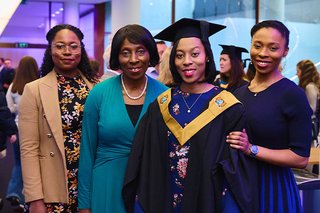What to expect on a Conveyancing course
Fri 15 Mar 2024
From Conveyancing Technician to Licensed Conveyancer, to Conveyancing Manager to business owner, there’s clear career progression for those with a conveyancing qualification.
But what can you expect when studying on a Conveyancing course, especially when you’re likely to be juggling your studies with other commitments in your work and personal life?
To get some advice and guidance, we spoke to a host of people in the industry, including a recently qualified learner, a Conveyancing Trainer, a founder of a Conveyancing firm, and even Dame Janet Paraskeva, Chair of the Council for Licensed Conveyancers.
What conveyancing courses are available?
At MOL, we offer three courses in partnership with the CLC and Scottish Qualifications Authority (SQA).
Conveyancing: An Introduction for Property Professionals
This short course covers an introduction to the conveyancing industry. You don’t need any knowledge or understanding of conveyancing procedure and practice or to be employed in a legal services role to study.
Level 4 Diploma in Conveyancing Law and Practice
This course is perfect if you have no previous experience or knowledge of the conveyancing procedure and practice, and want to work towards a career in conveyancing.
Level 6 Diploma in Conveyancing Law and Practice
If you’ve already completed Level 4 or hold academic qualifications such as a Law Degree, you can start your studies at Level 6 and achieve the professional standard expected of a licensed conveyancer.
Why are conveyancing qualifications important?
Achieving a formal conveyancing qualification, or even becoming fully licensed, doesn’t just benefit the learner. There are also a host of wider benefits for their organisation and the conveyancing sector as a whole.
Natalie Moore, founder and Managing Director of A Conveyancing, says: “Conveyancing is very collaborative, people bounce off each other and turn to each other for advice on laws changing or advice on a specific area of property law. You're always asking each other things.
To be able to turn to somebody with a qualification and ask those questions gives us all a sense of confidence in the answer we get back, especially when that knowledge is backed up with practical experience as well.
Vicki Abbott, a Conveyancing Trainer at law firm Shoosmiths, added: “Some of my colleagues that have only just started, they're already starting to say: “Oh, I now know why we asked that question or why we do what we do.” And they're feeling more confident in advising clients and customers and estate agents. They can really understand why they're telling people and the advice that they're giving obviously is more accurate.”
For an industry that is constantly evolving and keeping up with changes in legislation, these qualifications are also vital.
“They’re really important and the whole development of conveyancing in this country is vital for the country's economy,” said Dame Janet Paraskeva, Chair of the Council for Licensed Conveyancers.
“We’ve got people who are helping at the front line with all sorts of folk who are buying or selling the house or going into a property for the first time. But they're also safeguarding the passage of money and they're on the lookout for fraudsters and money launderers. So they have two kinds of roles, both of which are really important.”
Advice on studying for a conveyancing qualification
Margaret Quarshie is a lawyer with the government’s legal department who recently completed her Level 6 Diploma in Conveyancing Law and Practice. She says that her biggest challenge was balancing her studies, especially assessments and exam prep, with work.
But Margaret also offered some advice to those looking to advance their career with a conveyancing qualification.
What I would say is make sure that when you're working, because it's a distance program and you'll probably be working full time, make sure that you work consistently so bit by bit, don't leave it all to the last minute.
“It's good to read around with the recommended books as well, I think, in addition to the manual that they provide you. And do lots of practice.”
If you want to kick off a career or further your prospects in the exciting and ever-changing conveyancing industry, then check out our Conveyancing courses and enquire today!

Licensed Conveyancing
Qualifications
We’re proud to offer nationally recognised SQA qualifications in Licensed Conveyancing.





